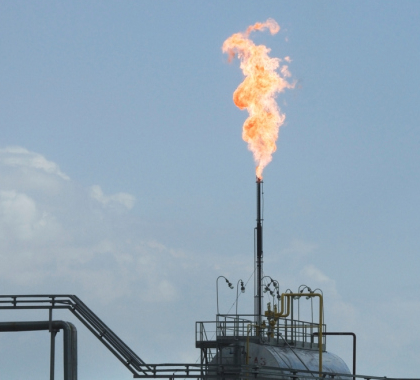A new study published in the peer-reviewed journal Geophysical Research Letters finds methane emissions from U.S. oil and natural gas production over the past decade are “an order of magnitude lower” than what has been reported by previous studies.
“Based on long-term and well-calibrated measurements, we find that (i) there is no large increase of total methane emissions in the United States in the past decade; (ii) there is a modest increase in oil and gas methane emissions, but this increase is much lower than some previous studies suggest; and (iii) the assumption of a time-constant relationship between methane and ethane emissions has resulted in major overestimation of an oil and gas emissions trend in some previous studies,” the study states.
The study was conducted by researchers from the University of Colorado-Boulder, the National Oceanic and Atmospheric Administration, and the Lawrence Berkeley National Laboratory.
Previous Estimates Error-Prone
The much higher methane emission estimates found in previous studies were caused by errors resulting from using ethane and propane measurements as a stand-in for methane emissions, the study states.
“Although ethane and propane are appropriate indicative tracers for [oil and natural gas] emissions, [methane] trends cannot be accurately estimated from ethane and propane,” the study states. “Thus, any conclusion of a large fossil methane increase in the past decade from studies that have used the constant [overall emission reduction efficiency] assumption is unreliable.”
Confirms EPA Estimates
The results of the Geophysical Research Letters study are bolstered by the U.S. Environmental Protection Agency’s (EPA) 2018 Greenhouse Gas Inventory (GHGI), released in April 2019, which reported greenhouse gas (GHG) emissions in the United States decreased by approximately 0.5 percent from 2016 to 2017. As a result, U.S. GHG emissions are now at their lowest levels since 1992 and only 1.3 percent higher than their 1990 levels.
EPA’s GHGI also reports U.S. methane emissions have declined by 15.8 percent since 1990, and those emissions from petroleum and natural gas systems have decreased by 10.5 percent and 14.2 percent respectively, even as oil production in the United States has increased by 80 percent and natural gas production has increased by 51 percent.
Huge Air Quality Improvement
At current levels, neither regulated air pollutants in general nor methane emissions from oil and gas in particular pose any threat to human or environmental health, says Tim Benson, a policy analyst with The Heartland Institute, which publishes Environment & Climate News.
“Overall, air pollution is becoming less and less of a problem over time, with the Texas Public Policy Foundation reporting that from 1970 to 2017 the United States saw aggregate emissions of the six criteria pollutants regulated under the Clean Air Act decline by 73 percent even as population and energy consumption increased, U.S. GDP rose 262 percent, and the vehicle miles traveled increased by 189 percent,” Benson said. “Neither U.S. air quality nor methane emissions threaten human health or the environment.
“Air quality in the United States has reached a point where tighter standards are no longer necessary,” said Benson. “As a result, rather than wasting billions of taxpayer dollars chasing away the last remaining molecules of methane or regulated pollutants, lawmakers should refrain from passing new legislation and allow air quality to improve even further as technological advancements develop, as has occurred in the oil patch.”
Industry Clean-Up
The study confirms industry has taken seriously its responsibility to reduce emissions through improved efficiency, says Gary Stone, executive vice president of engineering at Five States Energy and a policy advisor to The Heartland Institute.
“The results of this research are not surprising, since study after study has shown the oil and gas industry has made great progress in reducing air emissions, resulting in today’s air being cleaner than at any time during the Industrial Age,” Stone said. “One only has to compare old pictures of industrial towns to today to confirm the research.
“The groups claiming otherwise have no scientific basis for their arguments,” said Stone. “Their goal is political and economic control, and an active and burgeoning energy industry goes against their agenda.”
H. Sterling Burnett, Ph.D. ([email protected]) is a research fellow at The Heartland Institute.
INTERNET INFO
Tim Benson, “Research & Commentary: Study Says Methane Emissions from Oil and Natural Gas Production Are Significantly Lower than Previous Estimates,” The Heartland Institute, May 29, 2019: https://heartland.org/publications-resources/publications/research–commentary-study-says-methane-emissions-from-oil-and-natural-gas-production-are-significantly-lower-than-previous-estimates





